Results
-
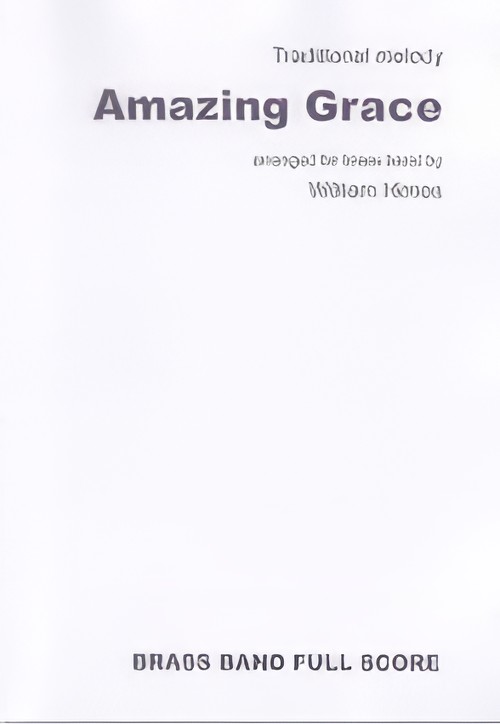 £46.95
£46.95Amazing Grace (Brass Band - Score and Parts) - Himes, William
Amazing Grace is one of the world's most loved hymn tunes and this glorious arrangement is sure to be popular with players and audiences alike.Beautifully crafted, and eloquently scored, this reflective, yet powerful arrangement builds to a glorious climax perfectly blending the traditional melody with sumptuous new harmonies.Duration: 3:00Recorded on Polyphonic QPRL219D Master Brass (Volume Fifteen)
Estimated dispatch 7-14 working days
-
 £19.99
£19.99Elegy (Brass Band - Score and Parts) - Hesketh, Kenneth
Elegy is a consortium commission in celebration of the 75th birthday of the distinguished wind band conductor Timothy Reynish. The music derives from a youthful symphony written when Hesketh was 16, the same source as his popular Masque. Full of big tunes and bitter-sweet harmonies, Elegy is a heartfelt thank you to a conductor who has done more than most to widen the vision of the wind orchestra movement.Suitable for 1st Section Bands and aboveDuration: 7.00
Estimated dispatch 7-14 working days
-
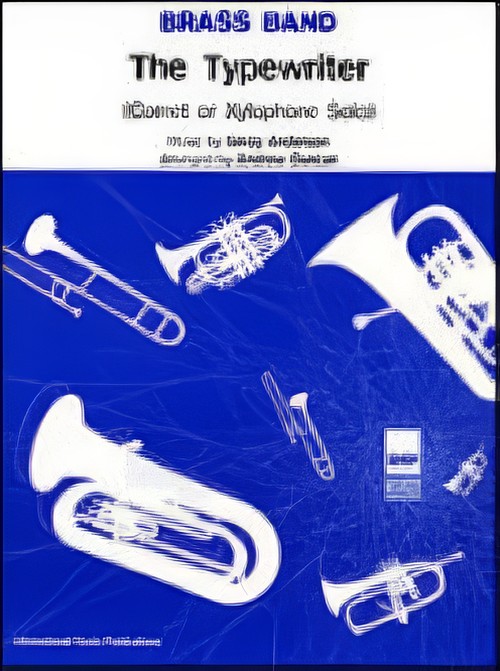 £40.00
£40.00Typewriter (Cornet or Xylophone Solo with Brass Band - Score and Parts) - Anderson, Leroy - Duncan, Andrew
A great chance to show off your Cornet or Xylophone soloist an this Leroy Anderson classic.Leroy Anderson has provided a collosal number of popular pieces. The Typewriter, arranged for brass band by Andrew Duncan as a cornet or xylophone solo, is probably most recognised now as the theme tune to the long-running BBC Radio 4 show "The News Quiz".Suitable for Advanced Youth/3rd Section Bands and aboveDuration: 4.00
Estimated dispatch 7-14 working days
-
 £30.00
£30.00Joy to the World - George Frideric Handel
"Joy to the World" is a popular Christmas Carol with words by Isaac Watts. As of the late 20th century, "Joy to the World" was the most published Christmas hymn in North America. The words of the hymn are by the English writer Watts are based on Psalm 98, 96:11-12 and Genesis 3: 17-18. The version of this carol usually heard today is from an edition by Lowell Mason and is named "Antioch" and attributed as "arranged by Handel". This tune has the first four notes in common with the chorus "Lift up your heads" from the Messiah and the third line recalls "Comfort ye" from the same work. But this resemblance is often dismissed as a chance resemblance by Handel scholars today. Another theory is its similarity to a tune called "Comfort" and associated with Charles Wesley's hymn "O Joyful Sound", which was written some three years earlier than Lowell Mason's "Antioch" in 1833. This carol has been recorded by many artists such as Andy Williams, The Supremes, Bing Crosby, Ella Fitzgerald, Johnny Cash, Nat King Cole, Perry Como, Vic Damone and Mariah Carey.
-
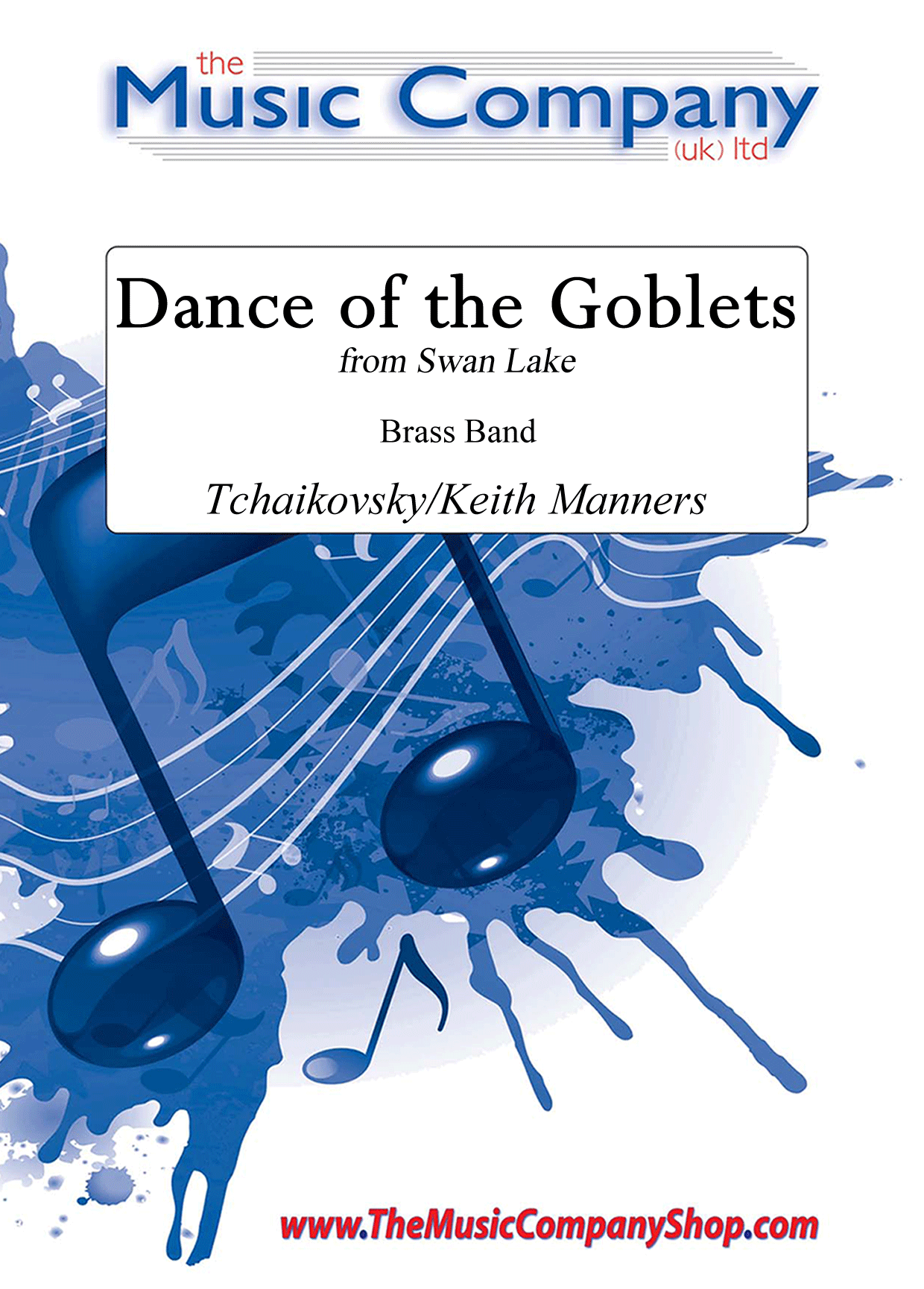 £30.00
£30.00Dance of the Goblets from Swan Lake - Tchaikowsky
From one of Tchaikovsky's most celebrated ballet scores - Swan Lake - this jaunty number has been brought to life for brass band through the craftsmanship of Keith Manners.A great addition to a concert programme, bringing a popular classic to the audience and an opportunity to expand appreciation of music from the great composers.
In Stock: Estimated dispatch 3-5 working days
-
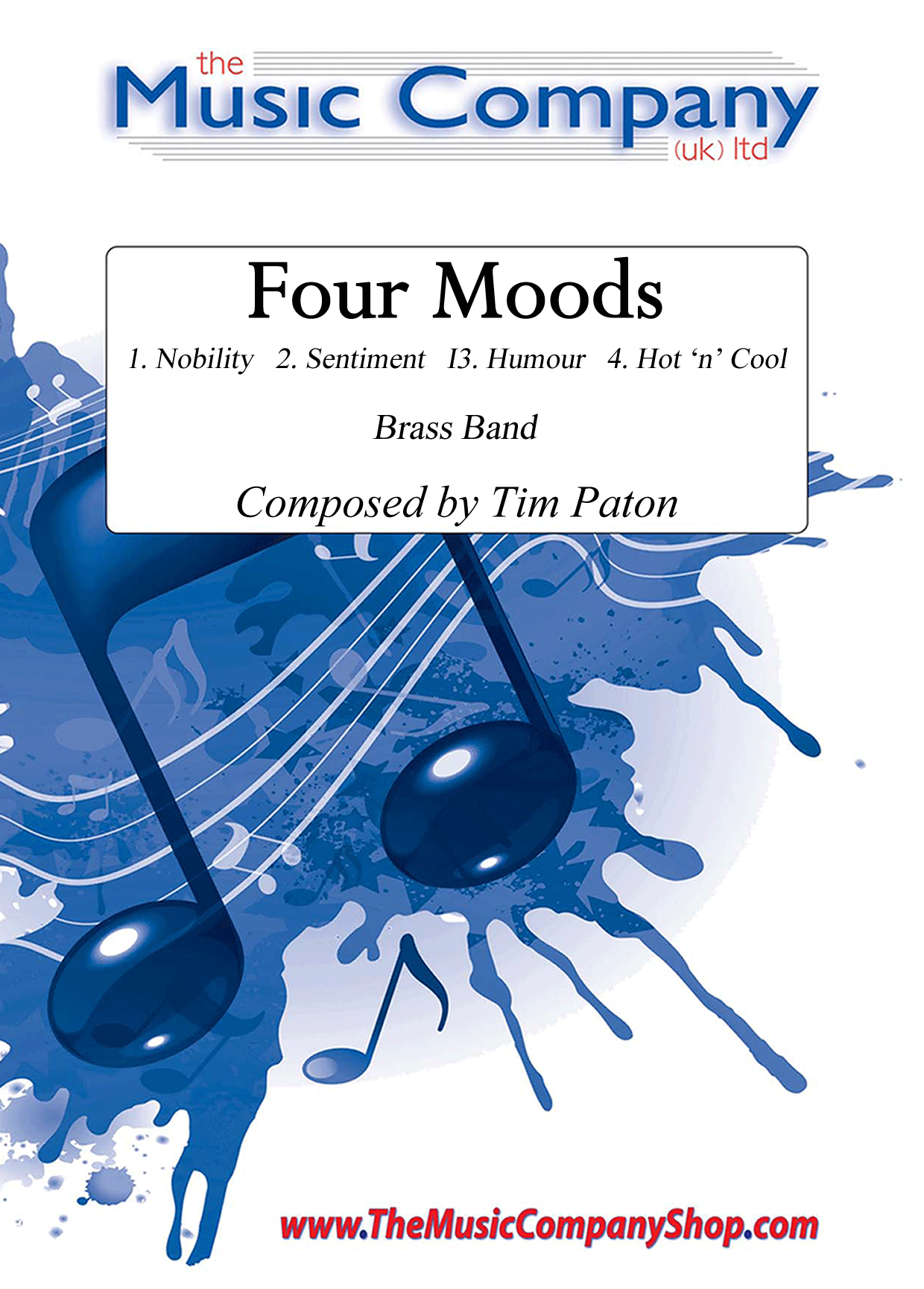 £30.00
£30.00Four Moods - Tim Paton
An original composition by Tim Paton, re-crafted from his quartet into a full brass version. Tim wrote this piece at the RNCM, initially for the college trombone quartet. It was subsequently featured on a radio broadcast and, by popular demand, he later created this full brass band version. It is also available for concert band.Four Moods is just that - made up of 4 sections, each presenting a different style and emotion. The piece opens grandly with Nobility and is shortly followed by Sentiment, a smooth and sweet movement. The third element - Humour - takes the melody just heard in the previous Sentiment, and makes fun of it in an amusing style which utilises 'rude' trombone glissandi. The whole piece is then brought to a memorable closing with the final section - Hot 'n' Cool, featuring a jazz/big band style.Good key players make this piece playable by most bands.
In Stock: Estimated dispatch 3-5 working days
-
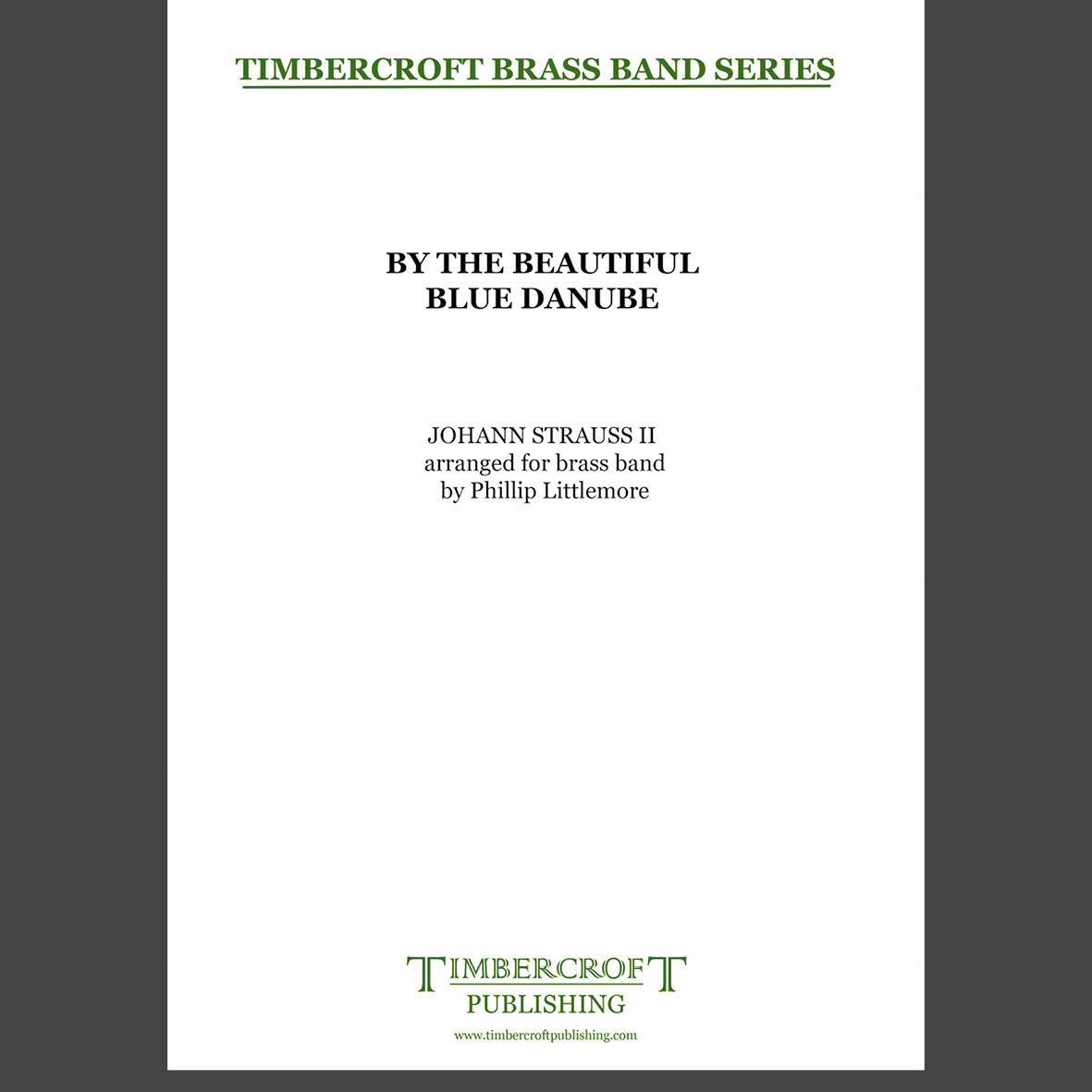 £35.00
£35.00By The Beautiful Blue Danube - Johann Strauss II arr. Phillip Littlemore
The Blue Danube or, to be more precise, By The Beautiful Blue Danube was composed by Johann Strauss II in 1866. It has remained one of the most consistently popular pieces of music in the classical repertoire although its initial performance was considered only a mild success. Duration: c. 8'00" (5'30" without repeats)Difficulty: Suitable for all grades
Estimated dispatch 5-7 working days
-
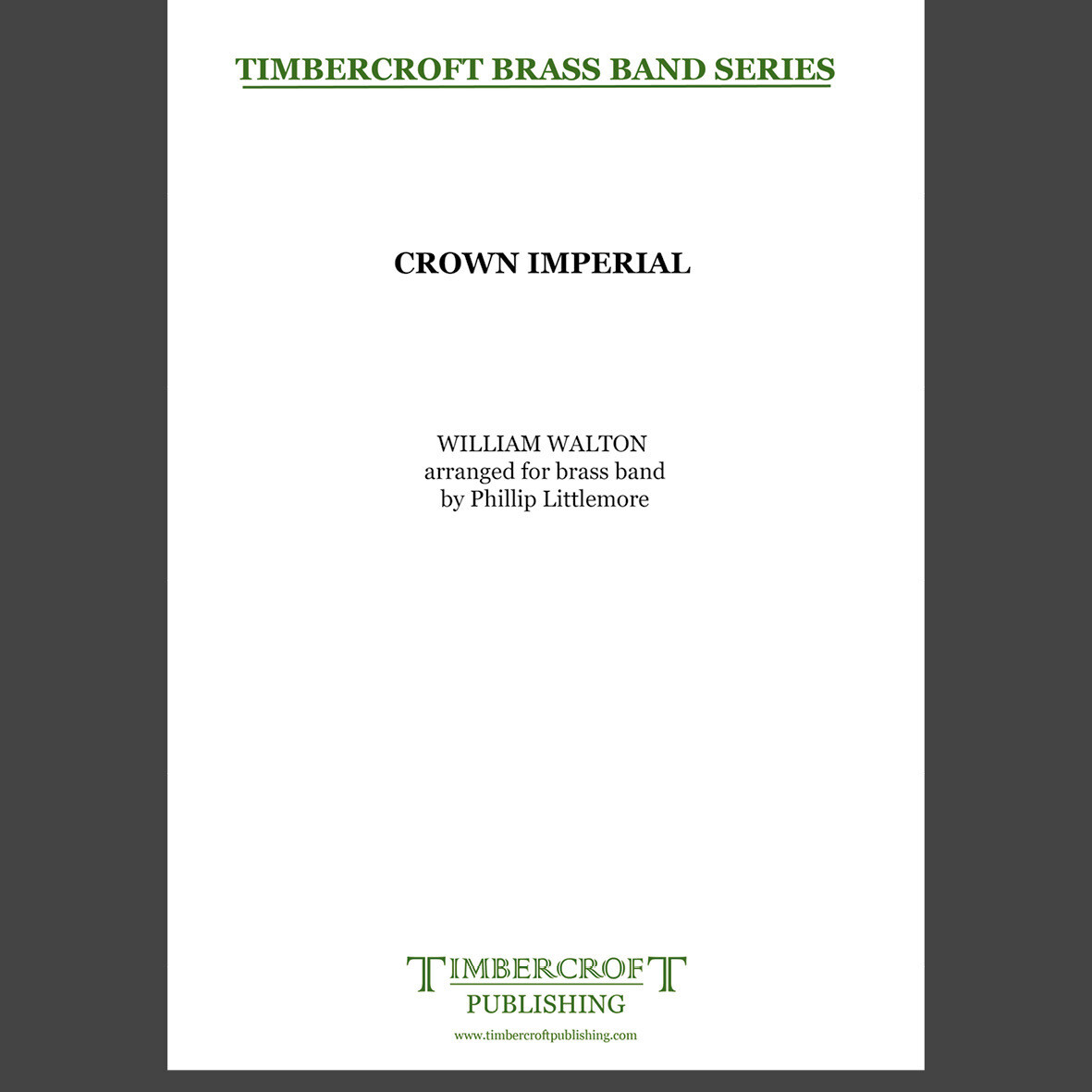 £40.00
£40.00Crown Imperial - William Walton arr. Phillip Littlemore
William Walton composed his Crown Imperial for performance at the coronation of King Edward VIII, which was scheduled for the 12th May 1937. However, due to the dramatic abdication of Edward, it was in fact performed at the Coronation of the new monarch, King George VI, which took place on the same scheduled date. The march became popular immediately, and arrangements for piano solo, organ, small orchestra and military band were all published within a year. It has been used at all Royal events since, most notably the Coronation of Queen Elizabeth II in 1953 and latterly King Charles III.This new brass band transcription is in keeping with the shorter, 6-minute concert version that Walton created immediately following the Coronation of George VI. However, the scoring is more in keeping with contemporary brass band voicings, corrects errors in the previous brass band transcription by Frank Wright, and provides a much more exciting version for brass band. "Phillip Littlemore's arrangement of Crown Imperial is a bit like Frank Wrght's, only Phillip's is in Technicolor!" (Gary Westwood, Leyland Band) A video of this arrangement can be found here: Crown ImperialDuration: 6'30"Difficulty: 2nd Section and above
Estimated dispatch 5-7 working days
-
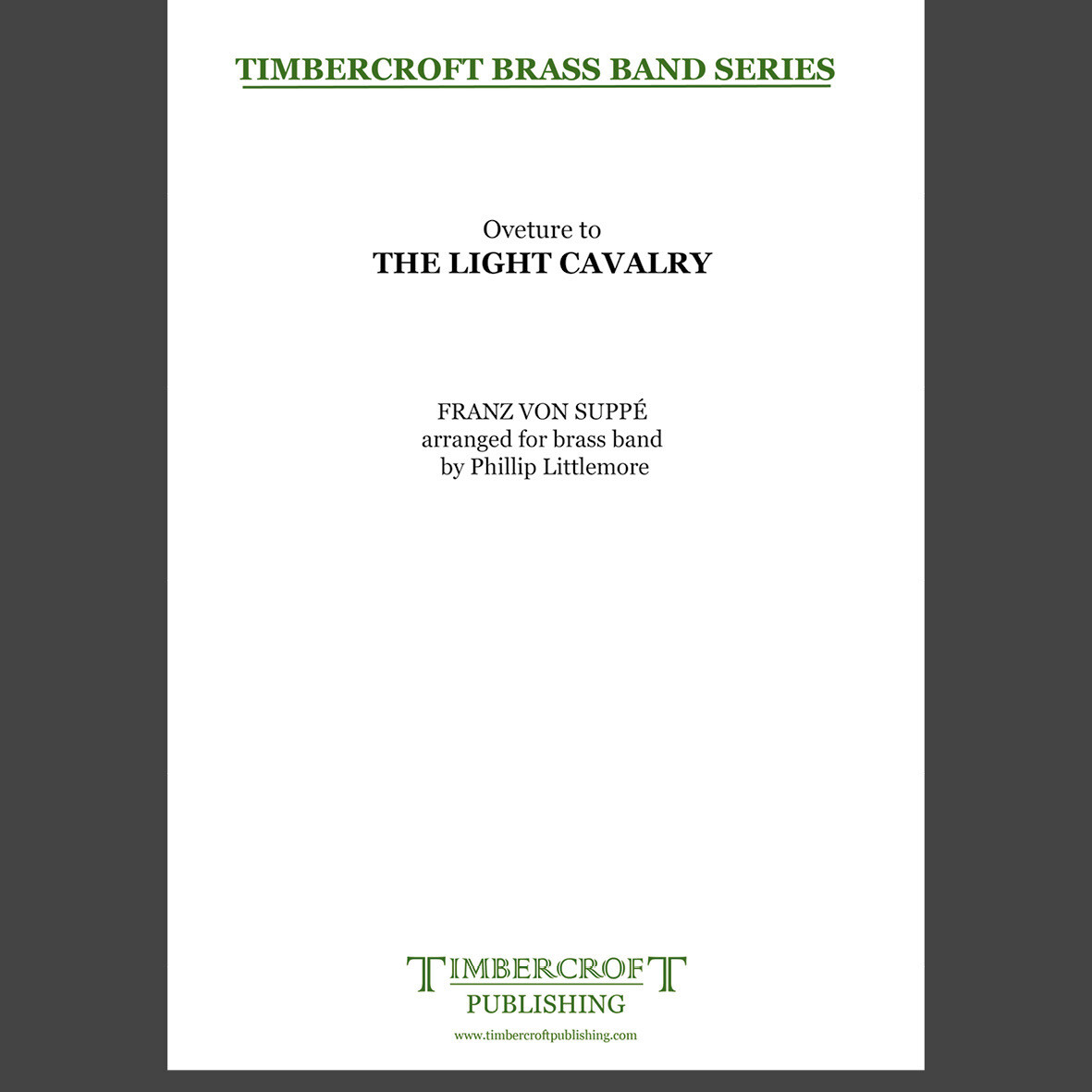 £40.00
£40.00Light Cavalry Overture - Franz von SuppAª arr. Phillip Littlemore
Francesco Cavalieri di Suppe-Demelli was born in Split, then in the Austrian empire, and began composing as a boy. On moving to Vienna he changed his name to the more Germanic and less ostentatious Franz von Suppe and began conducting opera as well as writing over three hundred works of his own. Most are unperformed today though the overtures, such as Poet and Peasant and Pique Dame, are still very popular. The operetta Light Cavalry was written in 1866 with a plot concerning a love intrigue which is resolved by the Hungarian Hussars (Light Cavalry).The Light Cavalry Overture consists of a fanfare, a faster section, and an Hungarian-styled slow section which are interspersed with the famous galop with its short, short long rhythm representing the beat of the horses' hooves. This music has been much copied, parodied and often used for cartoons.Duration: 6'00"Difficulty: Suitable for all grades
Estimated dispatch 5-7 working days
-
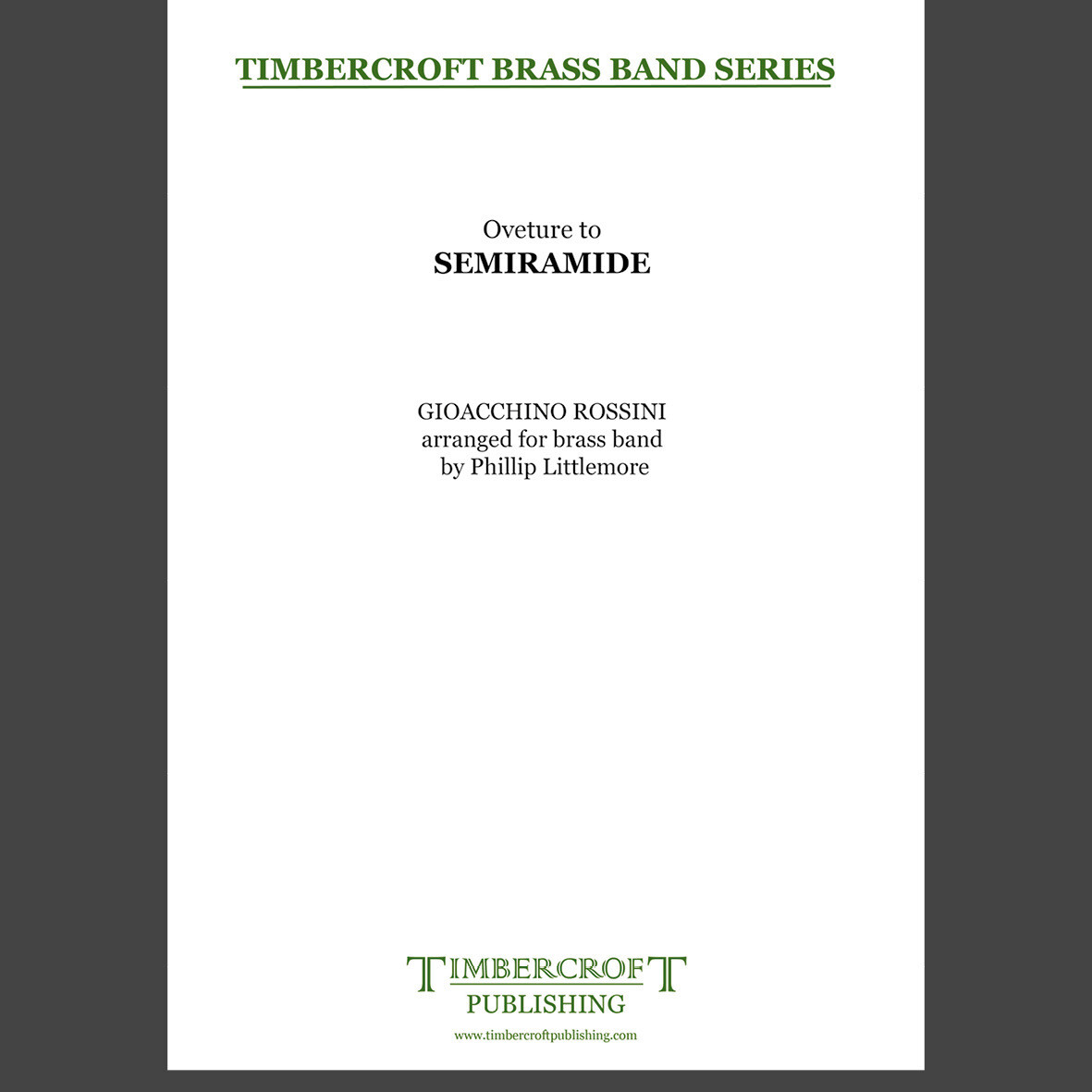 £40.00
£40.00Semiramide - Gioacchino Rossini arr. Phillip Littlemore
The Rossini Overture is practically a genre unto itself, for few other composers have had so many operatic overtures find a second home in the concert hall. Semiramide is one of Rossini's lengthier overtures, clocking in at approximately twelve minutes, although in this transcription it has been reduced to a more manageable eight minutes. Characteristically, Rossini uses several themes from the opera as the basis for his instrumental prelude. This overture became extremely popular in Rossini's day and its most distinctive feature is the rich andantino passage, introduced by the four horns that dominates the slow introduction after an opening flourish. It proved to be the last opera Rossini wrote in his native Italy. After a brief sojourn in London, he moved to Paris the following year and settled permanently in the French capital.Duration: 8 minutesDifficulty: 2nd Section and above
Estimated dispatch 5-7 working days
